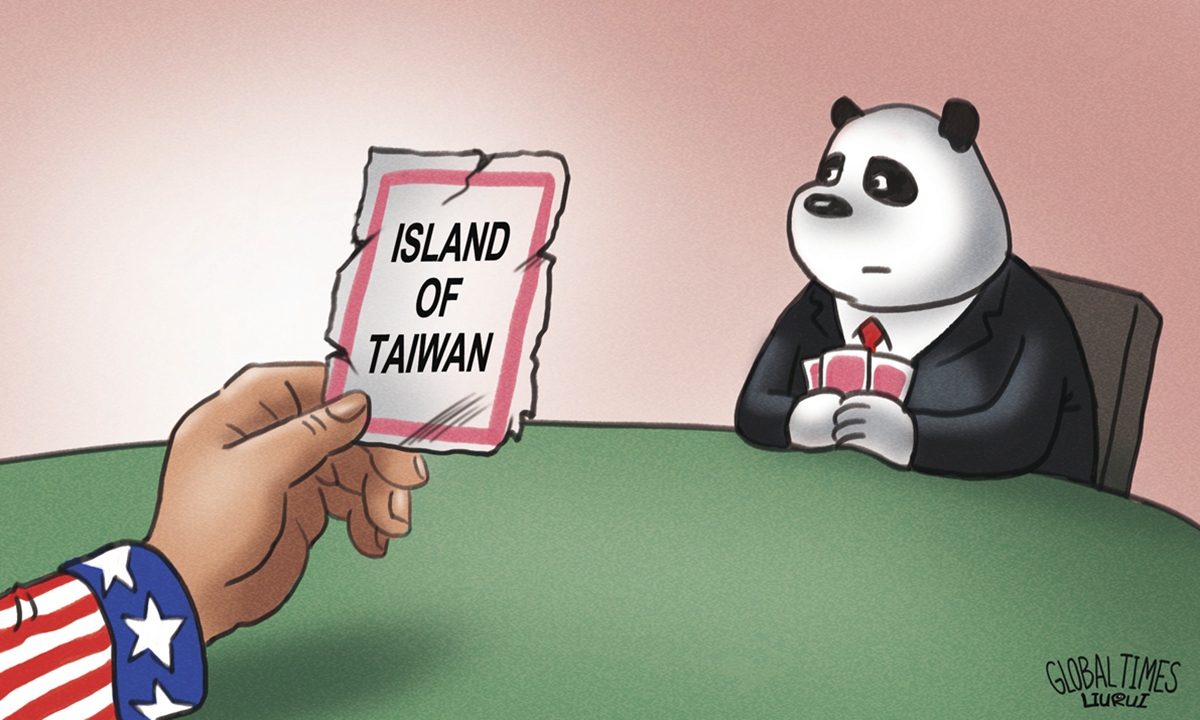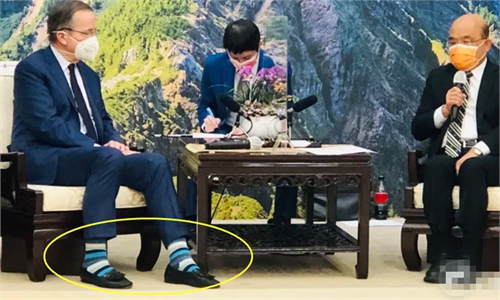Senior political advisor to propose law on natl reunification to deter Taiwan secessionists at two sessions

US, China, Taiwan island Illustration: Liu Rui/GT
As cross-Straits relations now face greater risks and more challenges from increasingly arrogant Taiwan secessionists and brutal interference from the US government, Zhang Lianqi, a member of the Standing Committee of the 13th Chinese People's Political Consultative Conference (CPPCC) National Committee, said he will submit a proposal that suggests the country formulate a law on national reunification during the upcoming two sessions.
"Over the past 17 years, the Anti-Secession Law has played an important role in curbing secessionist attempts for Taiwan independence and promoting the peaceful reunification of the motherland. Facing greater risks and challenges, conditions are becoming ripe to promote the reunification of the motherland by legal means, whether in a peaceful way or not," Zhang told the Global Times.
Zhang said that to solve the Taiwan question and realize the complete reunification of the motherland is the historical task of the Communist Party of China and the common aspiration of all Chinese people. Under the current situation where the Democratic Progressive Party (DPP) authorities are colluding with the US to incite confrontation and seek independence, we must use law-based means to promote the reunification.
"Therefore, it is urgent, necessary and legitimate to formulate a law on the reunification of the motherland," Zhang said.
On March 14, 2005, the Anti-Secession Law was formally adopted at the third Session of the 10th National People's Congress. On February 23, Ma Xiaoguang, spokesperson of the Taiwan Affairs Office of the State Council, said in response to a question at a regular press conference that over the past 17 years since the Anti-Secession Law has taken effect, it has played and will continue to play a unique and important role in deterring Taiwan secessionist forces, maintaining peace and stability across the Taiwan Straits, promoting the peaceful development of cross-Straits relations, and advancing the reunification process of the motherland.
The Anti-Secession Law focused on fighting "Taiwan independence," while the proposed reunification law will focus on promoting reunification, Zhang said, noting that Chinese citizens should have the obligation to promote national unity, and show more determination and confidence in destroying any attempts by secessionist forces.
A bipartisan US delegation of former senior defense and security officials landed in Taiwan island on Tuesday amid the escalating Ukraine crisis, which was hyped by some Western media and Taiwan secessionists as a prelude to Taiwan's future.
The delegation's visit met with strong opposition from the Chinese mainland. "It is futile for the US to send anyone to show its so-called support for Taiwan," Chinese Foreign ministry spokesperson Wang Wenbin said at Tuesday's routine press briefing.




